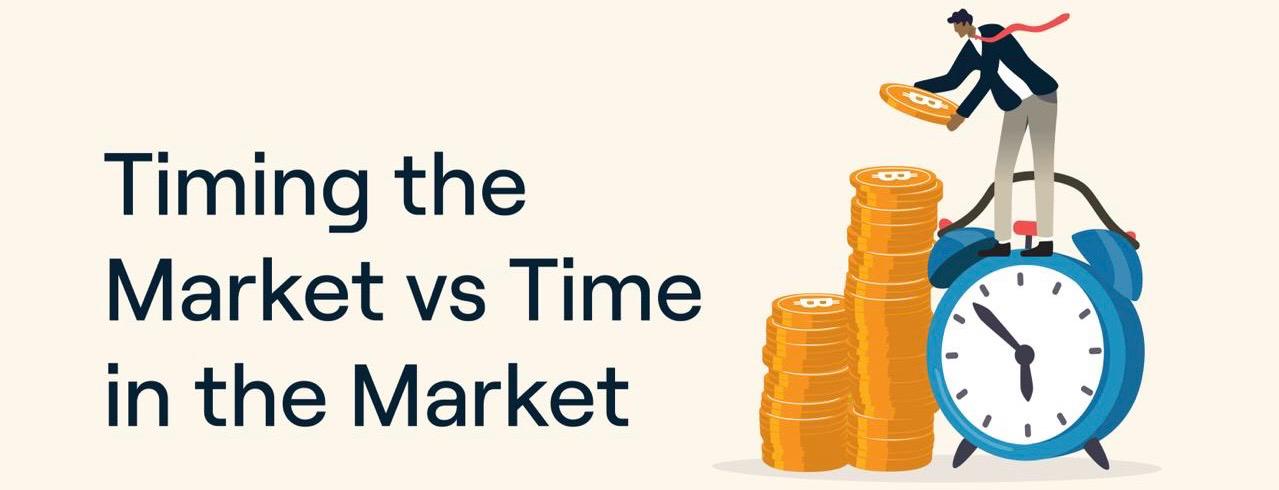
What Does "Time in the Market" Mean?
"Time in the market" refers to holding your investments over a long period — through ups and downs — and allowing them to grow with compounding returns. It’s about consistency, not perfection.
Why Timing the Market Rarely Works
Trying to “time the market” means trying to predict when to buy low and sell high — essentially guessing the market’s highs and lows. While it may sound profitable in theory, in practice, even seasoned professionals rarely get it right consistently.
Here’s why:
Markets are unpredictable: Short-term movements are driven by news, emotions, global events, and investor sentiment — none of which can be consistently forecasted.
Missing just a few days matters: According to a Fidelity study, if you missed the 10 best days in the stock market over a 20-year period, your returns would drop significantly — often by more than 50%.
Fear and greed dominate: Emotional decision-making can cause panic selling during downturns and overbuying during bubbles — both of which hurt long-term returns.
The Power of Staying Invested
Let’s illustrate with a simple example:
Imagine you invested ₹1,00,000 in a mutual fund that gave an average return of 12% per year.
After 10 years, that amount would become ₹3,10,585.
After 20 years: ₹9,64,629
After 30 years: ₹29,95,993
That’s the magic of compounding — the longer your money stays invested, the harder it works for you.
Real-World Proof
The most successful investors of all time — think Warren Buffett — did not build wealth by jumping in and out of the market. Buffett famously said, “The stock market is designed to transfer money from the Active to the Patient.”
Over the long term, markets have always trended upward despite short-term volatility — whether it was the 2008 financial crisis, the COVID-19 crash, or geopolitical tensions. Investors who stayed the course emerged stronger every time.
Key Takeaways
Compounding rewards the patient — the longer you stay, the more you gain.
Trying to time the market is a losing game — and may cost you more than you think.
Volatility is normal — don’t let short-term noise distract you from your long-term goals.
A SIP approach (Systematic Investment Plan) helps automate discipline and avoids emotional investing.
Final Thoughts
The most valuable asset in investing isn’t money — it’s time. If you’re serious about building wealth, don’t focus on timing the perfect moment to invest. Focus on staying invested, being consistent, and letting compounding do the heavy lifting.
Because in investing, it's not about the timing — it's about the time.
.png)